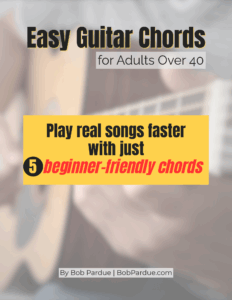Thanks For Visiting! Here’s Your Free Guitar Cheat Sheet
 Thank you for checking out my page! Although I’ve changed the website over to feature my fine art photography, I still want you to have this free gift.
Thank you for checking out my page! Although I’ve changed the website over to feature my fine art photography, I still want you to have this free gift.
Below is your free download to help you start learning guitar step by step.
This printable PDF is designed especially for adults over 40 who want to finally enjoy playing music without overwhelm.
Inside, you’ll find simple, easy-to-follow chord diagrams and practice tips you can use right away. Keep this handy when you pick up your guitar so you’ll always know what to play next.